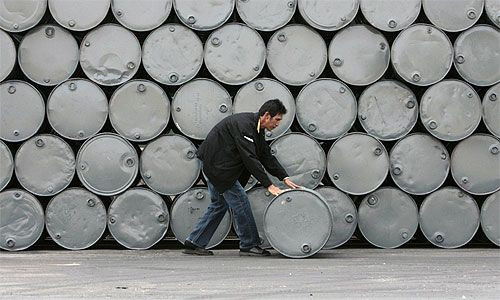OPEC Sees Demand For Its Own Crude Slipping, As Global Oil Demand Rebounds

The Organization for Petroleum Exporting Countries, or OPEC, predicted on Wednesday that demand for its crude oil would slip in 2014, even as global demand for oil rises.
In its latest monthly forecast, OPEC said that the world would need about 300,000 more barrels of oil per day in 2014, compared to 2013 growth levels, with the average demand sticking to about 90 million barrels per day for 2014.
But the organization also said that demand for its crude oil in 2013 will decline by 400,000 barrels per day from 2012 levels and will further decline in 2014 by another 300,000 barrels. Non-OPEC oil supply is also expected to increase by 1 million barrels this year, led by strong gains in the Americas and China.
The increase in world oil demand, the biggest since 2010, is partly attributed to an improvement in global economic growth, the report said. But the group added that oil demand is closely tied to the uncertain pace of economic growth in the U.S., the EU and China.
The lack of demand for crude oil also “implies a further build in global crude inventories, which currently stand at high levels,” the report read.
In a research note presented Tuesday, Barclays analysts said that the days of heavily discounted crude oil in North American markets appear to be over. Crude oil prices stood at $105.6 per barrel on Wednesday, up 1.5 percent.
The federal U.S. Energy Information Administration forecast on Tuesday that crude oil will average at $100 per day in 2014, assuming no disruptions from unrest in Egypt. The organization said that consumption among advanced and emerging nations, as measured by OECD membership, will be roughly even in 2013.
The EIA also said that the U.S. produced more crude oil in April and May 2013 than at any time since 1992.
OPEC’s members are Algeria, Angola, Ecuador, Iran, Iraq, Kuwait, Libya, Nigeria, Qatar, Saudi Arabia, the United Arab Emirates and Venezuela.
© Copyright IBTimes 2024. All rights reserved.





















